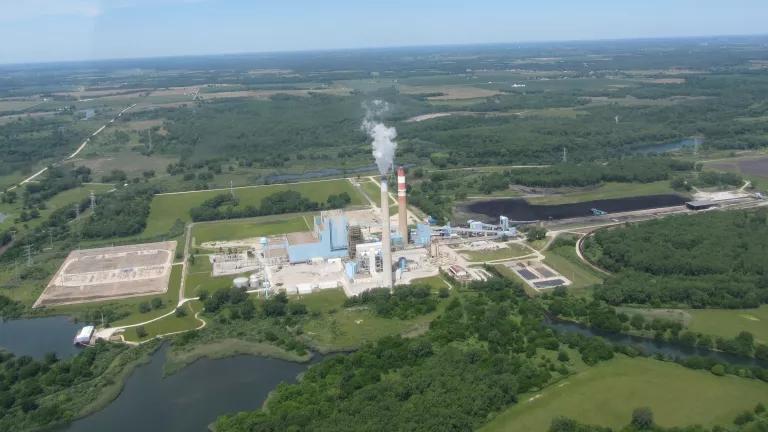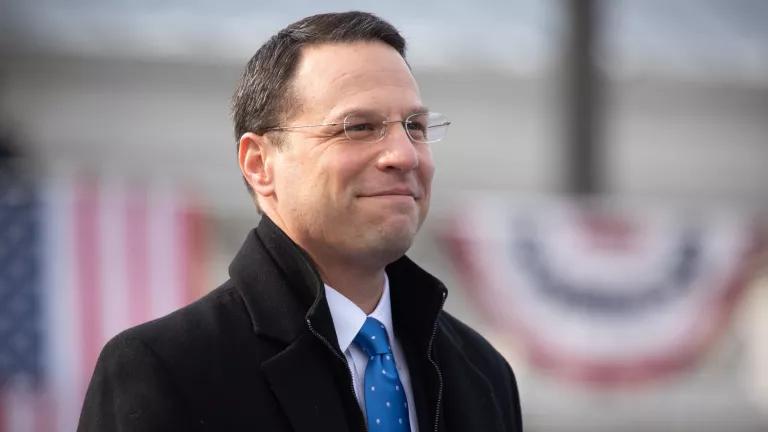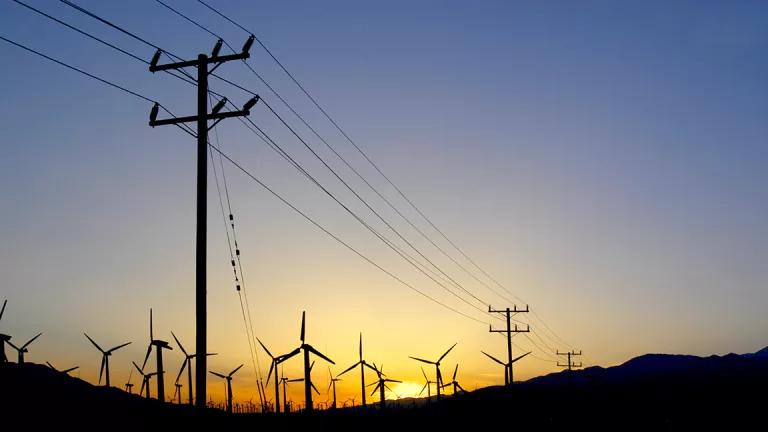As Coal Dies, Impacted Illinois Communities Need Support
Four Illinois coal plants are closing, following a national trend. Workers and nearby communities need resources for just transition.

Duck Creek coal plant
Last year, Vistra CEO Curtis Morgan said coal was “on its way out.”
Last week, his vision came true when Vistra announced that it will shutter four of its coal plants in Illinois: Duck Creek, Havana, Hennepin and Coffeen. While the stated reason for the plants’ closure was Illinois’ updated Multi-Pollutant Standard (MPS), Morgan said that the closures were “inevitable” and cited “unfavorable economic conditions.”
These plant closures could leave workers and communities in crisis. They highlight the urgent need for solutions to support the people impacted by the ongoing transition away from fossil fuels.
Those solutions are critical because Vistra's Illinois plant closures are part of a larger trend: coal generation in the U.S. has fallen more than 40 percent in the last decade. 2018 was the second-highest year ever for coal retirements, despite the extreme measures the Trump Administration has undertaken in an effort to help coal (weakening clean air standards, appointing a coal lobbyist to head the U.S. Environmental Protection Agency, and replacing the Clean Power Plan with a rule that will increase pollution and cause up to 1400 deaths per year).
Why are coal plants closing across the U.S., despite President Trump’s best efforts to keep them open? Market forces are a major driver. Since 2009, the cost of solar energy has fallen 88 percent and wind energy has fallen 69 percent; they are now two of the cheapest sources of electricity.
Renewable energy has fallen so far in price that it is now often cheaper to build new wind and solar generation than it is to operate existing coal plants. For nearly three-quarters of U.S. coal plants, customers would save money if those plants were shut down and replaced with renewable energy. Coal is like an old clunker of a car whose mileage is so bad that it’s cheaper to scrap it and buy a brand-new car than to keep buying gas for it.
Given all this, it’s no wonder that coal is retiring at record rates, or that in April the U.S. generated more electricity from renewables than from coal for the first time ever.
This transition away from coal is critical for public health, for protecting ourselves from the worst impacts of climate change (like the increasingly common floods and heat waves that hit Illinois this year), and for energy affordability.
Despite those benefits, the closure of a coal plant can be difficult for both the workers at the plant who lose their jobs and the town where the plant is located, whose tax base may be significantly impacted by the closure.
Unfortunately, although the need to support just transitions in coal communities is more urgent than ever, fossil fuel companies have demonstrated—over and over again—that they won’t support transition if left to their own devices.
Vistra appears to be no different. The company reported that in April through June of this year, it turned a profit of $354 million and was sitting on $964 million in cash—yet it has not put forward a plan that would enable a lasting transition for workers and communities impacted by the plant retirements.
The company’s plan appears to be a $140 million-a-year subsidy it asked the legislature for this spring which includes no funding for coal ash cleanup, no funding for worker retraining, no funding for community transition or replacement funds for lost property taxes.
We can’t afford to wait and hope that a Vistra executive in Texas wakes up one morning feeling charitable towards the people of Havana, Hennepin, Coffeen, and Canton, Illinois. We need action now to ensure a just transition for Illinois workers and communities affected by these plant closures.
The Clean Energy Jobs Act has a real plan for a just transition for communities in Illinois affected by the move away from coal: investing $100 million in job training, economic development and property tax replacement funds, incentives to bring clean energy development, and support for cities and towns to create their own plans for their clean energy futures.
These plants' closures make passing the Clean Energy Jobs Act—the only legislation in Illinois with a substantive plan for just transition—more urgent than ever.



